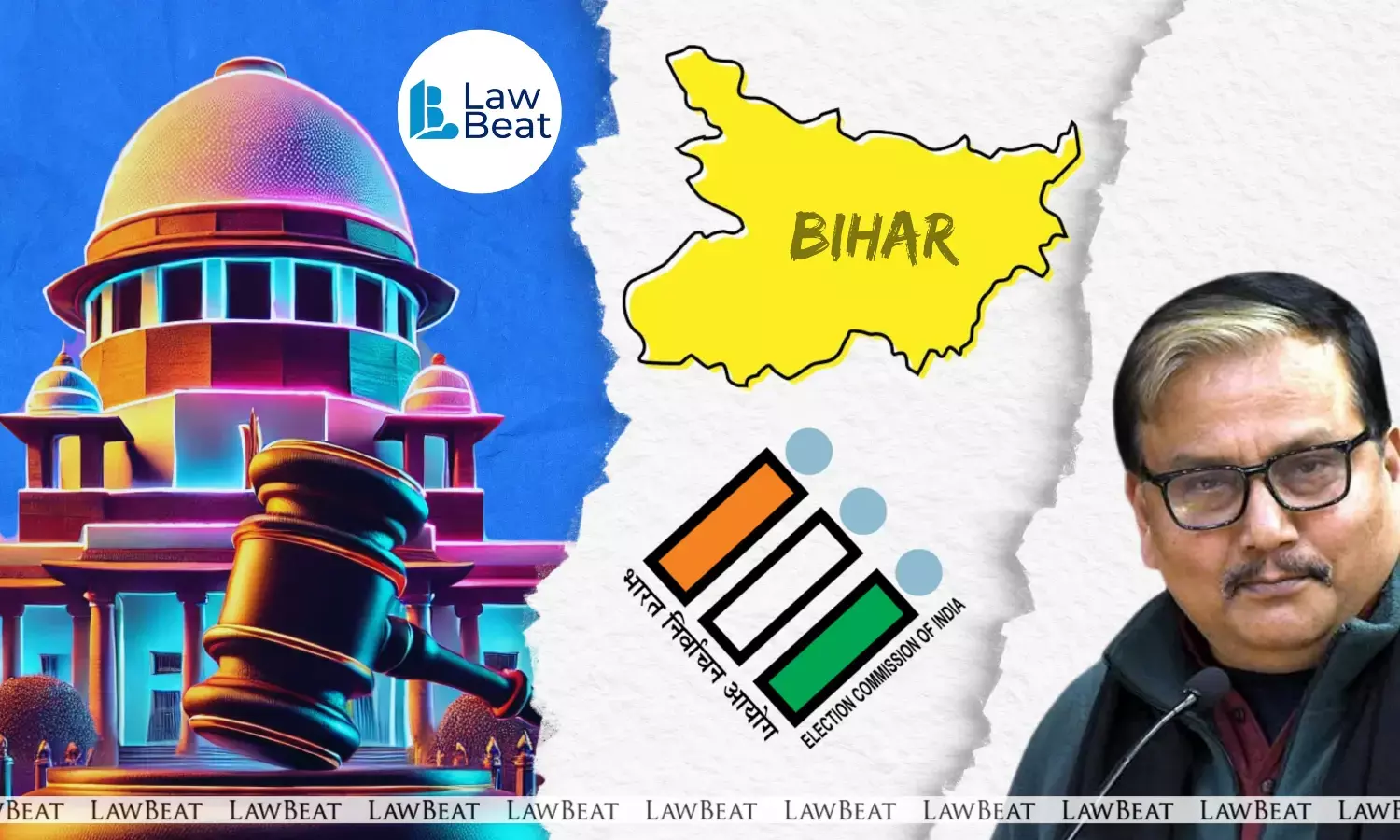RJD MP Moves Supreme Court Against Bihar Electoral Roll Revision, Terms It 'Discriminatory & Disenfranchising'

Rashtriya Janata Dal (RJD) MP, Manoj Jha has approached the Supreme Court under Article 32 of the Constitution, challenging the Election Commission of India’s (ECI) Special Intensive Revision (SIR) of electoral rolls in Bihar ahead of the 18th Assembly elections.
Alleging that the process is arbitrary and violative of Articles 14, 21, 325, and 326 of the Constitution, the petitioner has sought urgent judicial intervention to prevent mass disenfranchisement, particularly of marginalized communities in the state.
The petition filed through AOR Fauzia Shakil seeks quashing of the ECI's June 24, 2025 order initiating the SIR, and its subsequent clarification dated June 30, 2025.
Alternatively, the petitioner has prayed that the upcoming Bihar elections be conducted on the basis of existing electoral rolls, or that the Commission be directed to accept documents listed in Form 6 of the Registration of Electors Rules, 1960, as valid proof of eligibility.
Citing Bihar's socio-economic vulnerabilities, the petition notes that the state, with nearly 7.9 crore registered voters, has the country’s lowest literacy rate (61.8%) and per capita income (only 30% of the national average). It also records the highest inter-state migration, with over 9.3 million people migrating between 2001 and 2011.
According to the petitioner, the abrupt and stringent revision process, combined with Bihar's monsoon floods and displacement, will inevitably exclude large numbers of voters, particularly Muslims, Dalits, the poor, and migrant workers.
"The present SIR process is not only hasty and ill-timed, but has the effect of disenfranchising crores of voters, thereby robbing them of their constitutional right to vote. Moreover, this exercise has been launched during the monsoon season in Bihar, whenmany districts in Bihar are affected by floods and local population is displaced, thereby making it extremely difficult and almost impossible for a large section of population to meaningfully participate in the process," it states.
The petition highlights that the ECI failed to consult political parties before ordering the revision, violating the principles of transparency and accountability. Further, it argues that the process, requiring voters to submit one of 11 specified documents, imposes an unreasonable burden on citizens to prove their citizenship, contrary to settled law placing this burden on the State.
The petitioner has stated the impracticality of the documentary requirements, pointing out the low penetration of many such documents in Bihar.
For example, less than 2.4% of the population holds a passport, birth registration remains low, and a minuscule percentage possesses a government-issued permanent residence certificate or land allotment document. Commonly available identity proofs like Aadhaar card, ration card, and MGNREGA job cards, which cover the majority of the state’s population, have inexplicably been excluded from the acceptable list", the plea states.
Alarmingly, the petitioner argues that over 4.74 crore voters, around 60% of Bihar’s electorate—are now required to prove their citizenship afresh, despite many having been part of the electoral rolls since 2003. The powers granted to Electoral Registration Officers (EROs) to suo motu question a citizen’s eligibility, without clear guidelines, are described as excessive and prone to misuse.
"After the initiation of the present SIR process, an overwhelming majority (about 4.74 crore out of 7.9 crore on the current ER) carry a disproportionately high burden of proving their citizenship with the help of proofs of date and place of birth. One of the most affected classes are the Migrant workers, many of whom despite remaining listed in the 2003 voter rolls, are unlikely to be able to return to Bihar within the stipulated time frame of 30 days to submit their enumeration forms leading to automatic deletion of their names from the electoral roll in violation of R 21A of the Registration of Electors Rules, 1960," the plea reads.
The plea refers to the Supreme Court’s precedent in Lal Babu Hussein v. Electoral Registration Officer (1995), which emphasized procedural safeguards and fairness in electoral roll revisions. It asserts that the ECI’s guidelines violate the Registration of Electors Rules, 1960, by allowing EROs to initiate inquiries without affected persons first raising objections, and by eliminating personal service of notice mandated under Rule 19(2).
The petitioner also highlights the impracticality of completing such a massive verification exercise within a monsoon-affected state in a 30-day window, calling the process "hasty, ill-timed, and unworkable."
Political opposition to the SIR has been steadily building.
On July 3, the RJD and other INDIA bloc parties submitted a representation to the ECI, demanding cancellation of the order, removal of documentary hurdles, and an all-party consultation.
Bihar Opposition Leader Tejashwi Yadav also raised concerns with the state’s Chief Electoral Officer. Media reports from rural Bihar further highlight widespread confusion, lack of awareness, and difficulties in producing the required documents.
Various other pleas have also been filed before the Apex Court challenging the order and communication dated 24 June, 2025 issued by the Election Commission of India (ECI) directing for Special Intensive Revision of Electoral Rolls in Bihar (SIR Order).
